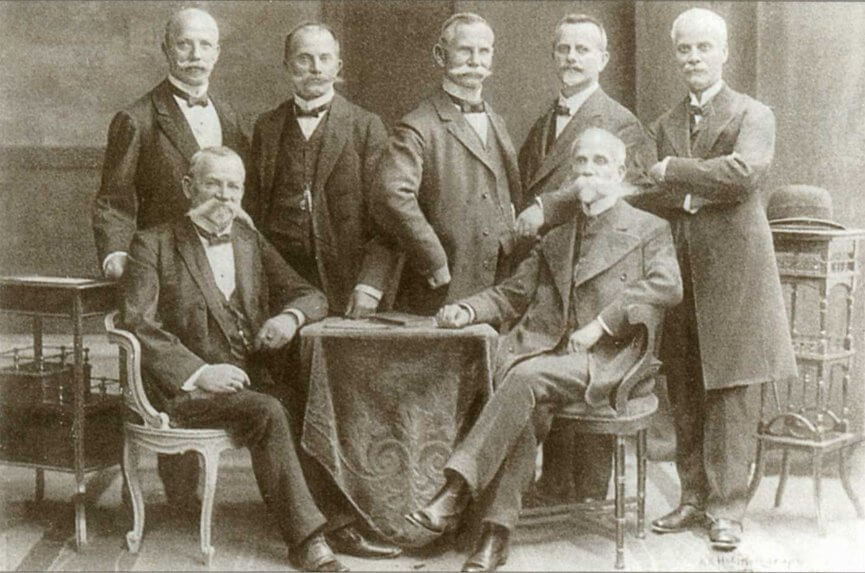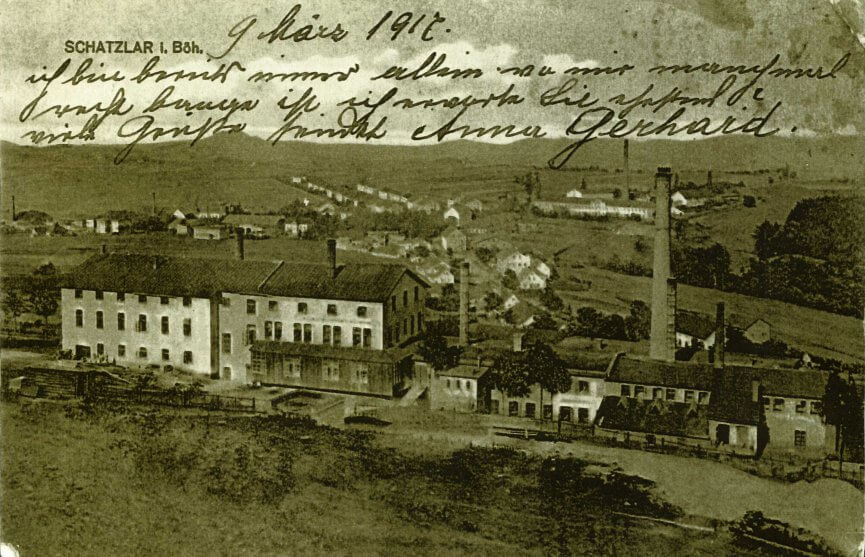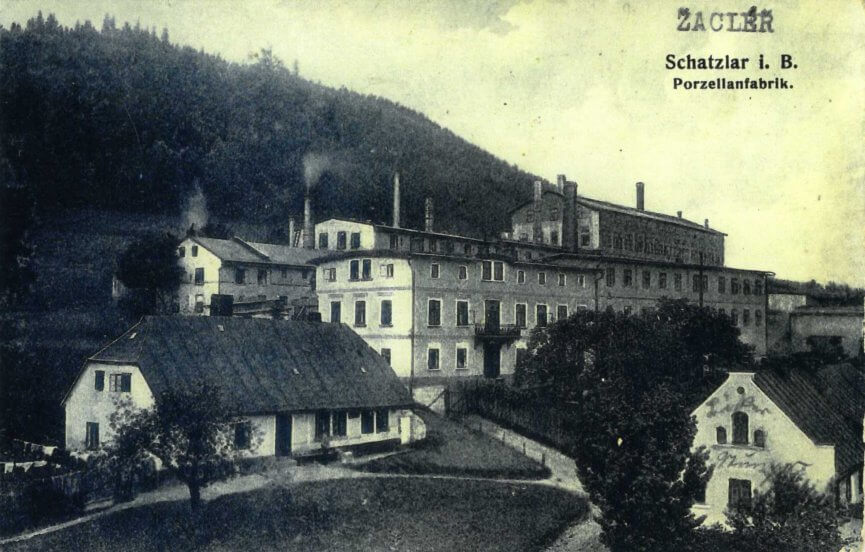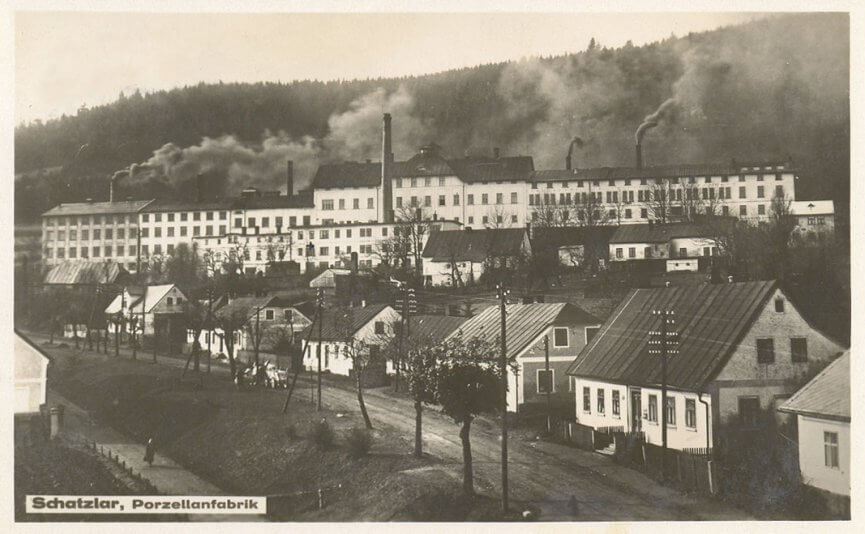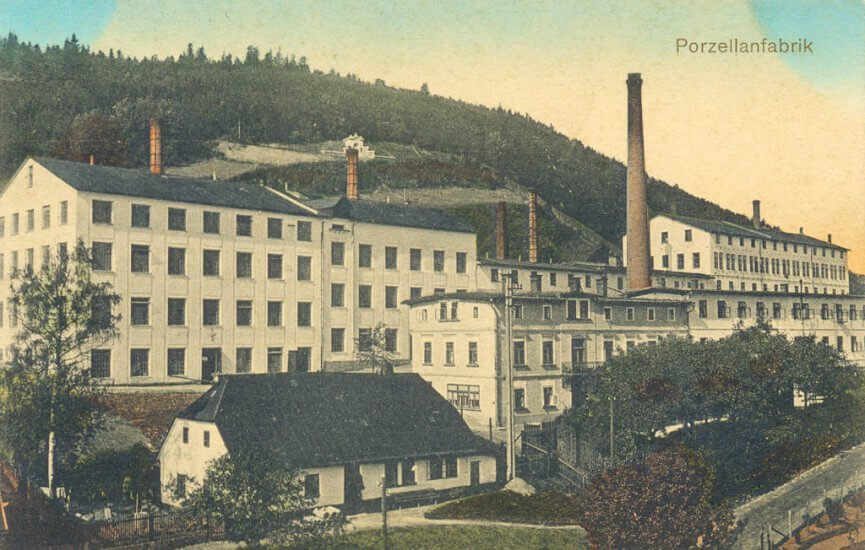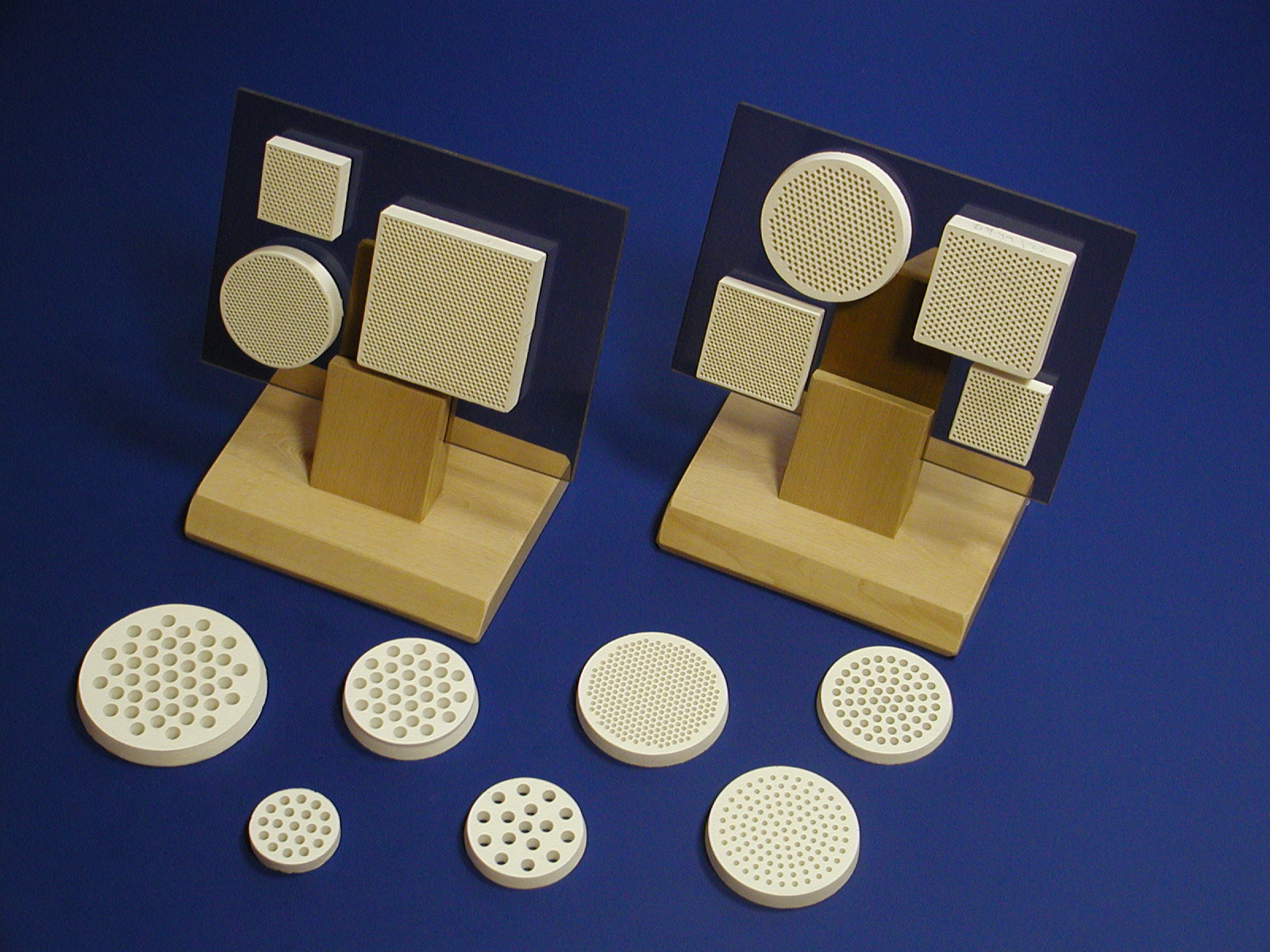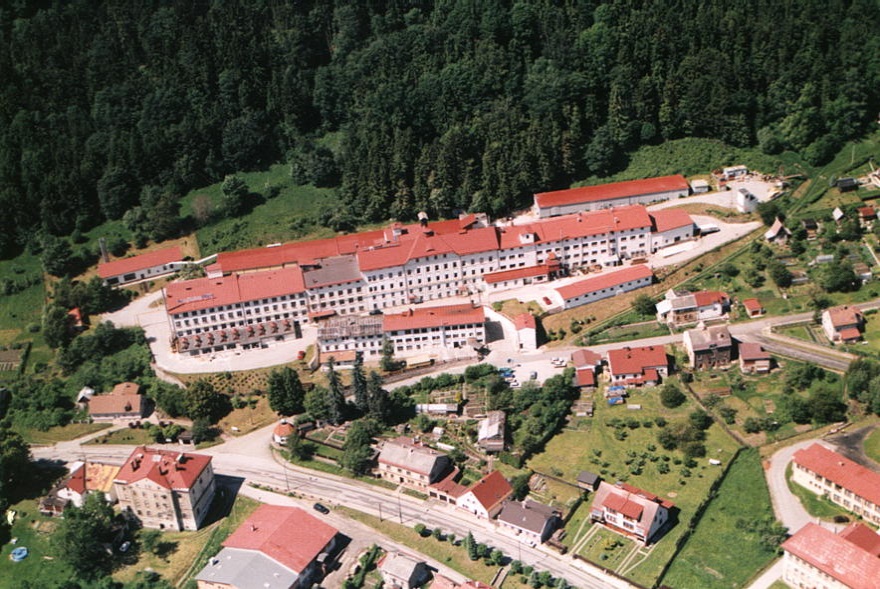1878
Establishment of the Žacléř porcelain factory dates back to 1878, when the second-born son of seven, Josef Pohl Heinrich, purchased a building in the city of Žacléř. The building included land where he would establish a company for the production of porcelain products from the Pohl brothers company in Kowary.
1881
In the fall of 1881, however, the eldest brother, Reinhold Pohl, took over production in Žacléř. The product range initially consisted of porcelain studs for upholstering, as well as various handles, rings and tassels for curtains, bottle caps, and porcelain smoking pipes. Until 1902, production gradually expanded to include porcelain dishes and dining sets with inscriptions, sacred statuettes of painted porcelain, and figurines and dolls that were assembled at home.
1902
The youngest of the Pohl brothers, Theodor, assumed management of the Žacléř porcelain factory in 1902. He anticipated the expansion of electricity and expanded production to include technical porcelain for electrical insulation. This range of products, together with sanitary accessories for American bathrooms, provided support for the business and was exported abroad.
1930
In 1930, T.P. presses were the first to make products made from the synthetic resin – Bakelite; two years later, he introduced products made from a personally developed resin – Theopolite. Working under him was the designer E. Schwantner, and later, the pupil V. Myslbek who later became a renowned sculptor.
1934
1945
After nationalization of production in 1945, the Žacléř porcelain factory was focused exclusively on technical porcelain and industrial applications of its products.
1952
On January 1st, 1952, the plant started cooperation with the electrical porcelain plant in Louny and merged with them in 1958. The plant was gradually modernized, and an increase in production and productivity was experienced mainly due to the construction of drying belts and glazing lines.
1962
1964
A turning point came in 1964, when the product range expanded with the inclusion of products made from pyrostat, which was designed for the foundry industry (strainer cores and filters), and heating ceramics (pipes, gas burners, boiler steam rollers).
since 1989
Export and production volume then increased, mainly into countries with more developed metal processing industries (Federal Republic of Germany, Sweden, and Norway).In 1989, the Žacléř porcelain factory successfully underwent further changes. In 1994, it was privatized by management under the trade name Keramtech, Ltd. Žacléř and continues production of ceramics to this day.
